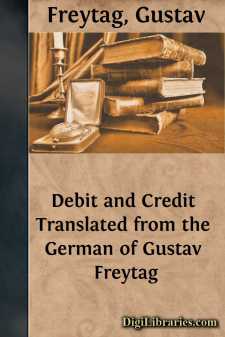Categories
- Antiques & Collectibles 13
- Architecture 36
- Art 48
- Bibles 22
- Biography & Autobiography 813
- Body, Mind & Spirit 142
- Business & Economics 28
- Children's Books 15
- Children's Fiction 12
- Computers 4
- Cooking 94
- Crafts & Hobbies 4
- Drama 346
- Education 46
- Family & Relationships 57
- Fiction 11829
- Games 19
- Gardening 17
- Health & Fitness 34
- History 1377
- House & Home 1
- Humor 147
- Juvenile Fiction 1873
- Juvenile Nonfiction 202
- Language Arts & Disciplines 88
- Law 16
- Literary Collections 686
- Literary Criticism 179
- Mathematics 13
- Medical 41
- Music 40
- Nature 179
- Non-Classifiable 1768
- Performing Arts 7
- Periodicals 1453
- Philosophy 64
- Photography 2
- Poetry 896
- Political Science 203
- Psychology 42
- Reference 154
- Religion 513
- Science 126
- Self-Help 84
- Social Science 81
- Sports & Recreation 34
- Study Aids 3
- Technology & Engineering 59
- Transportation 23
- Travel 463
- True Crime 29
Pictures of German Life in the XVth XVIth and XVIIth Centuries, Vol. I.
by: Gustav Freytag
Description:
Excerpt
DEDICATION.
To my dear Friend Solomon Hertzel.
Without your knowledge I dedicate this work to you, who have taken so kind an interest in it, whose excellent library has so often helped when other sources failed, and where, as industrious collectors, we have examined so many old flying sheets and manuscripts.
To you also these records of the olden times, in which the private life and feelings of the writers are portrayed, are especially valuable, for by them a clear light is thrown on events in our political history which till now have been only occasionally noticed, and we may discover from them how the German people have felt, suffered, and lived.
If these records of individuals can be judiciously arranged according to periods and their position in life, it appears to me that an instructive insight may be obtained into the gradual development of the mind of the German people.
I have endeavoured to carry this out from the middle ages to the beginning of the present era.
What I have added of my own is simple explanation: I have avoided saying anything where it could be given in the original; only where the old records fail to give a complete picture have I supplied the deficiency.
As there are very few who can read the language of the fifteenth, or even the seventeenth, century with ease, I have thought it necessary to translate the records into modern German, but at the same time to preserve something of the old style.
Accept kindly then, my friend, what of right belongs to you, for your flag waves on every vessel that I launch; and I trust that the freight that I have this time prepared, may meet with your hearty approbation.
GUSTAV FREYTAG.
Siebleben, 8th October, 1859.
In vain does the German seek for "the good old times." If even the pious zealot who condemns Hegel and Humboldt as the greatest of Atheists, or the conservative proprietor who is struggling for the privileges of his order, were to be thrown back into one of the last centuries, he would feel first unmitigated astonishment, then horror, at the position in which he would find himself placed. What now appears to him so desirable would make him miserable, and he would be driven to despair at the loss of all the advantages of that civilization which he at present so little appreciates.
Let a German proprietor endeavour to realize to himself the position of one of his ancestors in the year 1559. Instead of the house he has now, built in the old German style, surrounded by its English pleasure-grounds, he would find himself shut up in a gloomy, dirty, and comfortless building, placed either on a height destitute of water, and exposed to the cutting blasts of the wind, or else surrounded by the fœtid smells of stagnant ditches. It is true that three generations back dim panes had been added to the small windows, and large stoves of Dutch tiles, which were fed with logs from the neighbouring forest, kept the cold out of the sitting-rooms; but the accommodation was limited, as it was occasionally necessary to defend the house against attacks from the citizens of the nearest town, roving bands of marauders, or reckless soldiers bent on revenge because they had been cheated of half their pay by the neighbouring prince....







